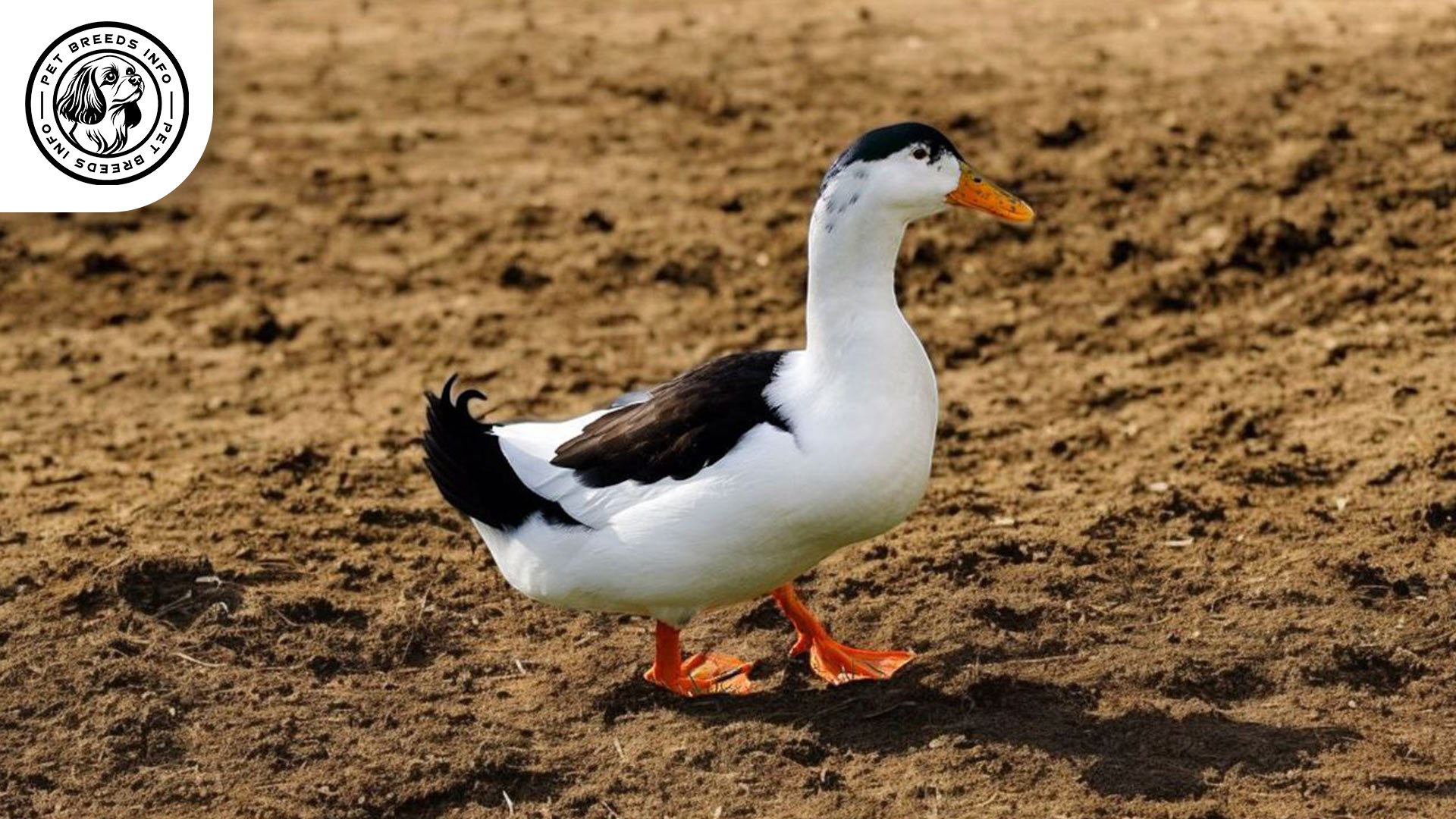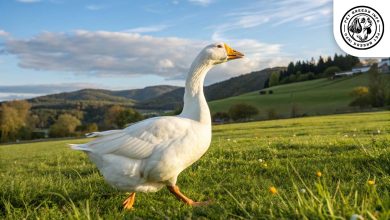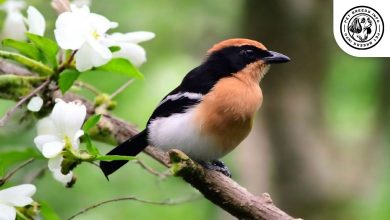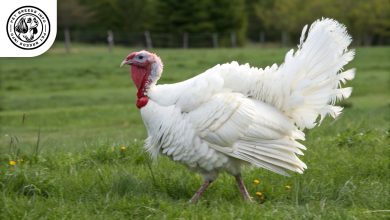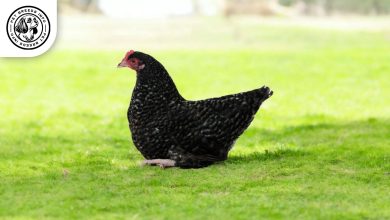Magpie Duck Breed: Personality, Lifespan, Food & Care
General Introduction of the Breed
The Magpie Duck, known simply as “Magpie,” is a domestic duck breed known for its striking black-and-white plumage. The breed originated in the United Kingdom during the 20th century and was developed by Oliver Drake and M.C. Gower-Williams. They aimed to create a practical and efficient breed suitable for egg production and meat while maintaining an attractive appearance.
Table of Contents
| Common Name | Magpie Duck |
| Scientific Name | Anas platyrhynchos domesticus |
| Origin | United Kingdom |
| Size | 2.3–3.2 kg (5–7 lbs) |
| Lifespan | 8–12 years |
| Colors | Black and white, blue and white variations |
| Talking Ability | Does not talk, but vocalizes |
| Noise Level | Moderate, gentle quacking |
| Social Behavior | Friendly, social with ducks and humans |
Physical Characteristics
Magpie Ducks are medium-sized birds with a streamlined body. Adult males typically weigh around 2.7 to 3.2 kg (6 to 7 lbs), while females weigh slightly less, around 2.3 to 2.7 kg (5 to 6 lbs). They have a dense but smooth feather coat.
One of the distinctive features of the Magpie Duck is its striking coloration. The most common variety is black and white, but blue and white variations also exist. Their heads are usually dark-colored, while the rest of their bodies display a white base with large patches of dark feathers.
They have a long neck, orange or yellow bills, and dark expressive eyes. The legs and feet are typically orange but may fade to a paler shade with age. The tail is moderately short and slightly upright.
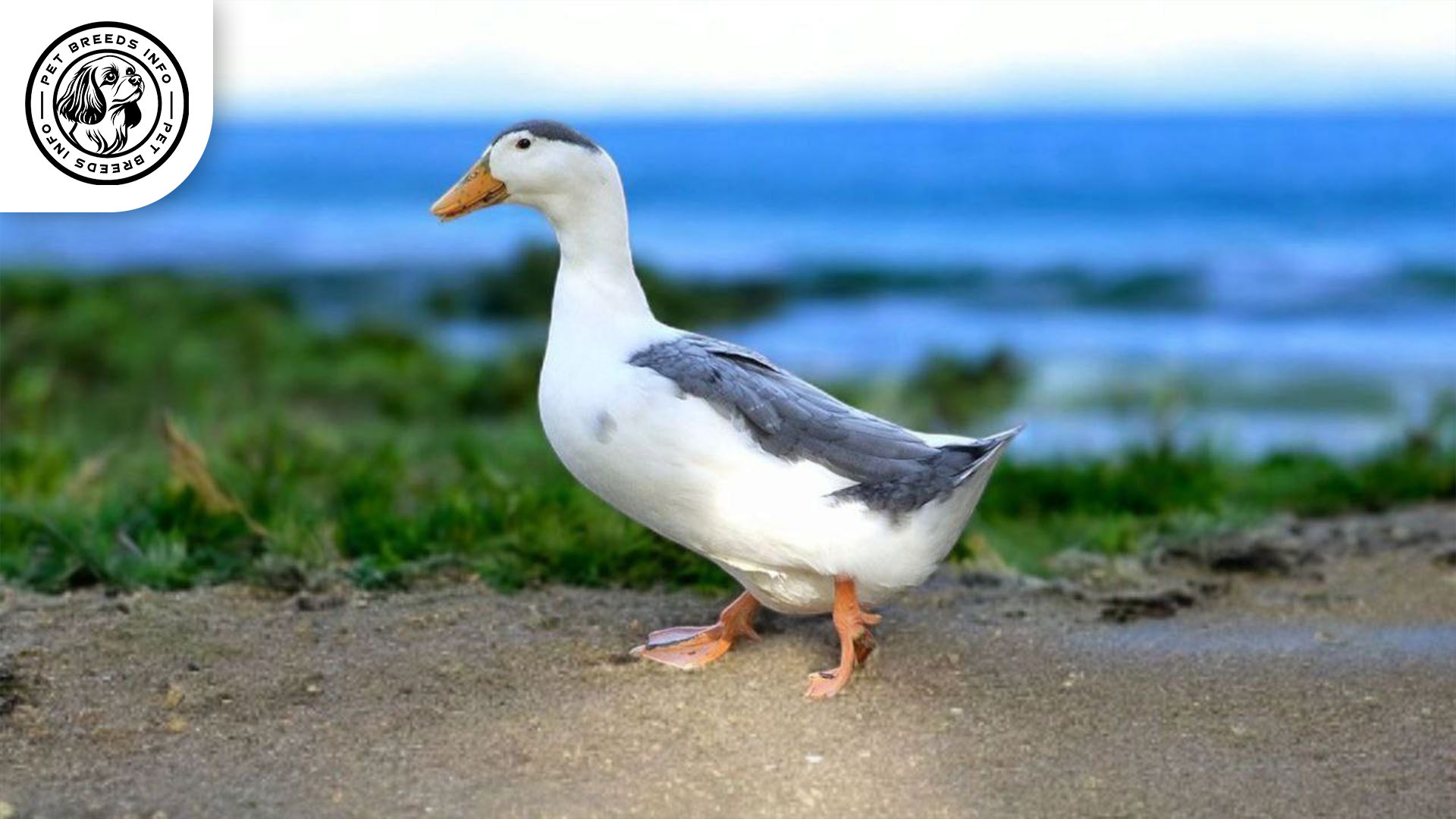
Personality and Temperament
Magpie Ducks are known for being intelligent and alert, making them excellent free-range birds as they are skilled foragers. They are moderately active and enjoy scavenging for insects, snails, and other small creatures.
They are friendly and can form strong bonds with their caretakers, though they may be wary of strangers. Their social nature makes them a great choice for flocks, as they get along well with other ducks and poultry.
They enjoy human interaction when raised with regular handling. Their calm yet active disposition makes them ideal for hobby farmers and backyard keepers.
Read More: Sumatra Chicken
Care and Maintenance Requirements
Magpie Ducks require ample space to roam and forage, making them more suited for farms and backyard ponds than small urban environments. However, they can adapt to confined areas if provided with proper enrichment.
They do not require extensive grooming, but access to clean water for bathing is necessary to keep their feathers in good condition. Regularly cleaning their living area and providing dry bedding helps maintain their health.
These ducks are relatively cold-hardy but should have a sheltered area during severe weather conditions. In hotter climates, they need shade and access to fresh water to prevent overheating.
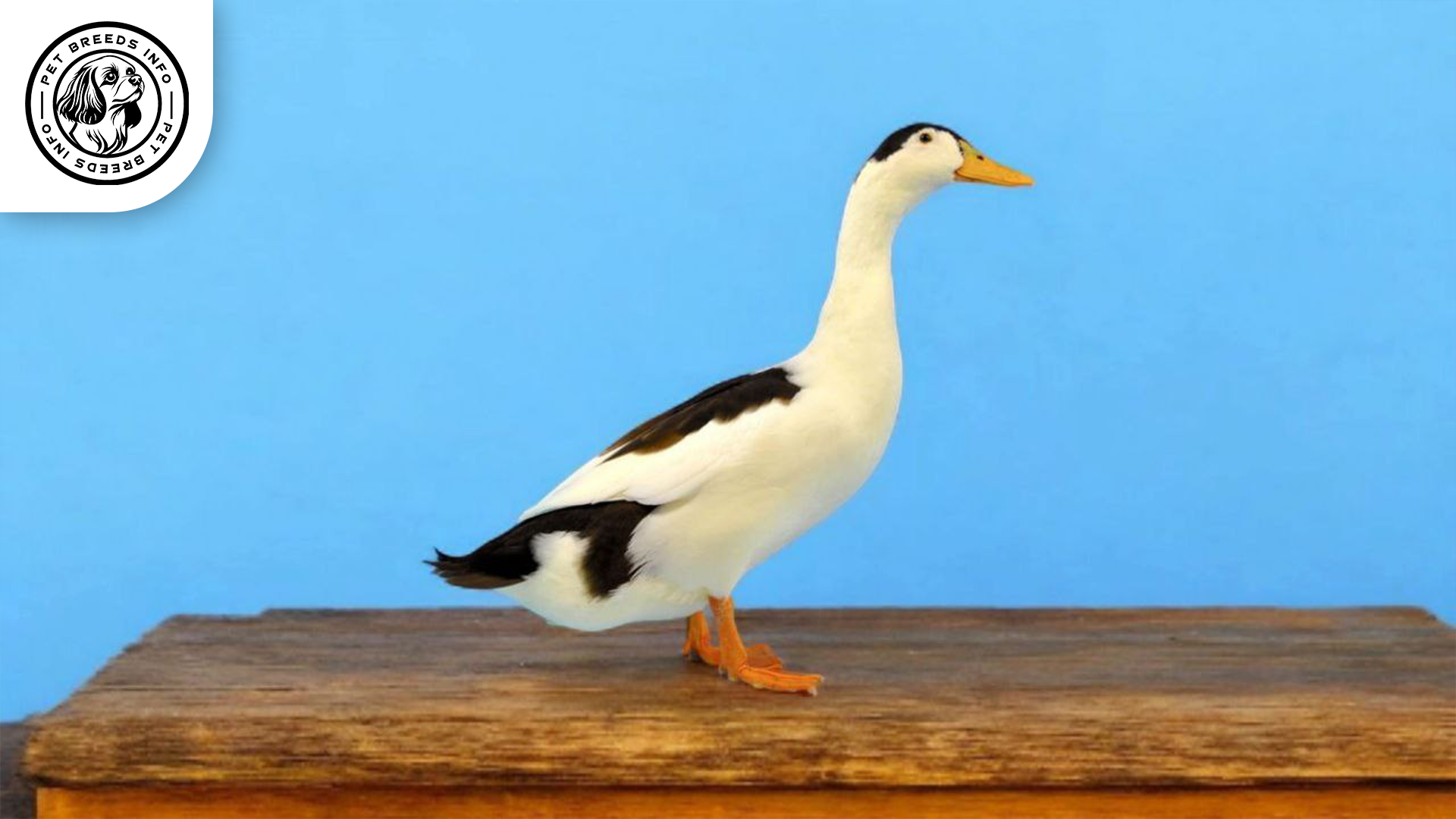
Diet and Nutrition
Magpie Ducks thrive on a balanced diet that includes commercial duck pellets, grains, and fresh greens. Supplementing with insects, mealworms, and occasional fruits increases their nutrient intake.
Foods to avoid include avocados, chocolate, onions, and processed foods, as these can be toxic to ducks. Clean drinking water should always be available.
Portioning food appropriately based on age and activity level is crucial. Ducklings require a high-protein diet, while adults need a balanced mix of protein and fiber for optimal health.
Health and Common Medical Issues
Magpie Ducks are generally hardy birds with few breed-specific health concerns. However, they can be susceptible to common waterfowl issues such as parasites, bumblefoot, and respiratory infections.
Regular health checks and vaccinations, where applicable, help prevent disease. Providing clean water, dry shelter, and a nutritious diet enhances their longevity.
With proper care and diet, Magpie Ducks typically live between 8 to 12 years.
Read More: Cuban Amazon Bird
Training and Behavior Management
Magpie Ducks are relatively easy to manage if trained from an early age. They respond well to routine and gentle handling, which helps them become more comfortable around humans.
They can be trained to recognize feeding times, follow their owners, and even come when called with consistent reinforcement. Encouraging positive behavior with food treats can improve their trust and socialization.
Interaction with Other Animals and Humans
Magpie Ducks are sociable creatures and thrive in a flock environment. They integrate well with other ducks, geese, and friendly poultry species.
They are generally good with children, especially if raised in a household where they receive gentle handling.
Since they prefer companionship, they are best suited for family homes or farms where they can receive regular interaction rather than for solitary pet purposes.
Price and Availability
Magpie Ducks are moderately priced, with ducklings typically costing between $10 to $25 per bird, depending on the breed quality and location. Adult breeding pairs may cost more.
It is recommended to purchase from reputable breeders, specialized waterfowl farms, or hatcheries to ensure good health and genetic quality. Adoption from rescue organizations is also an option.
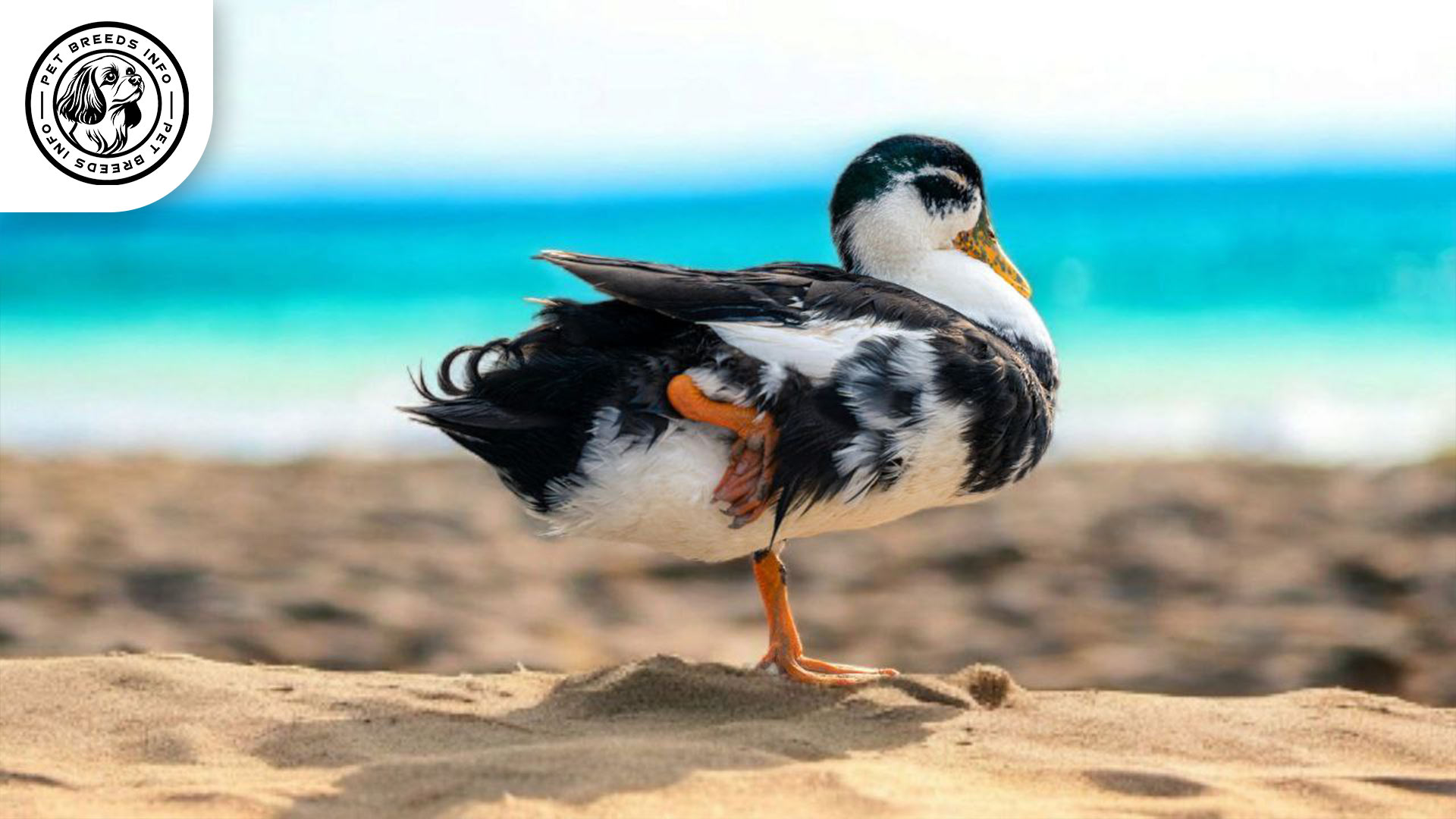
Conclusion and Final Thoughts
The Magpie Duck is an excellent breed for backyard flocks and small farms due to its attractive appearance, friendly temperament, and strong foraging skills.
They are ideal for individuals looking for a dual-purpose bird that provides both eggs and meat while also being a delightful companion.
Potential owners should consider their need for space, access to water, and a well-balanced diet before adopting this breed.
Read More: Catalana Chicken
FAQ
What is the average lifespan of a Magpie Duck?
Magpie Ducks live around 8 to 12 years when provided with proper care, diet, and clean living conditions.
Are Magpie Ducks good for egg production?
Yes, they are efficient egg layers and can also be raised for meat, making them a great dual-purpose breed.
Can Magpie Ducks be kept in a backyard?
They do well in spacious backyards with access to water and shelter, but they’re not ideal for small apartments.
What do Magpie Ducks eat?
Their diet includes duck pellets, grains, greens, insects, and occasional fruits. Fresh water is essential.
Are Magpie Ducks friendly with children?
Yes, when handled gently from a young age, they are calm and friendly around kids and other animals.
